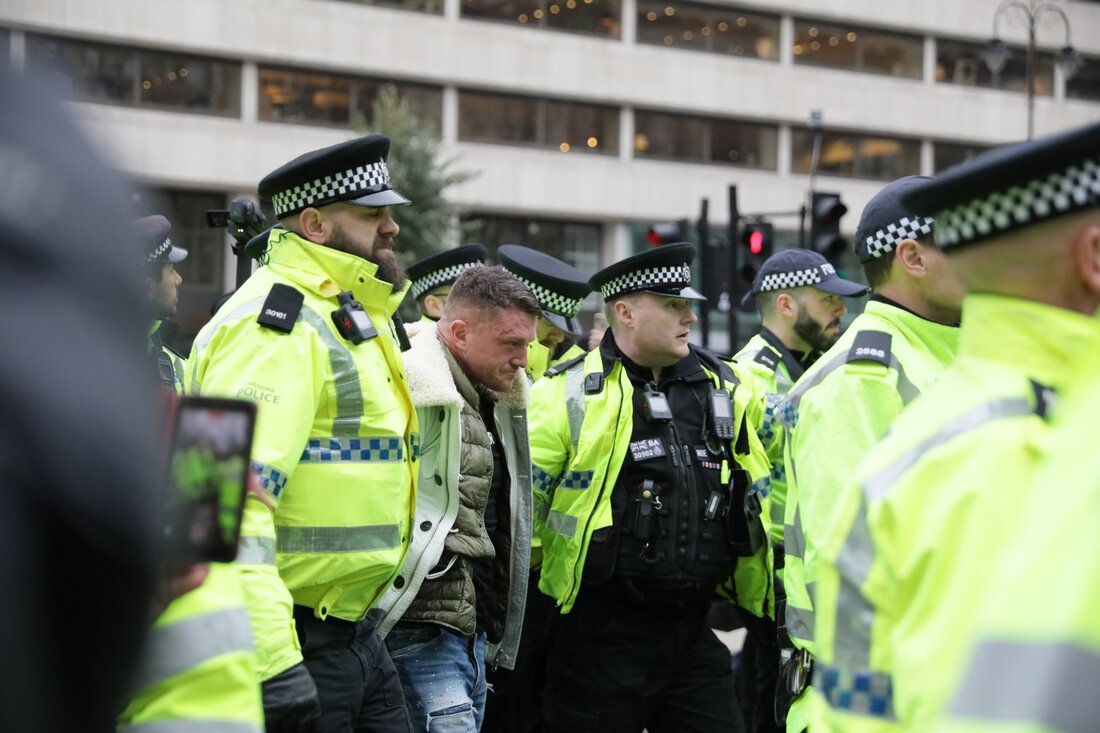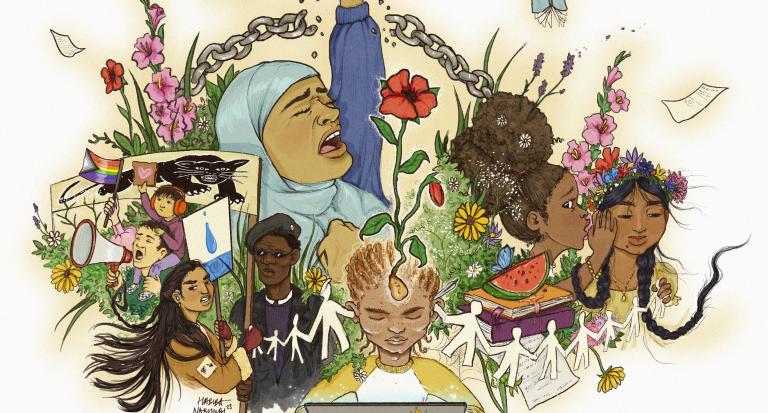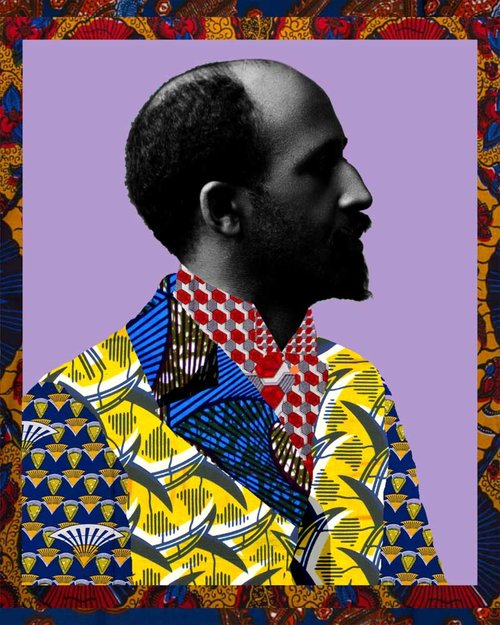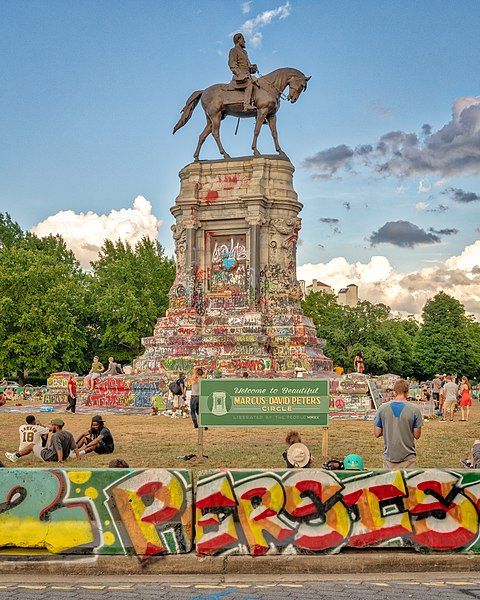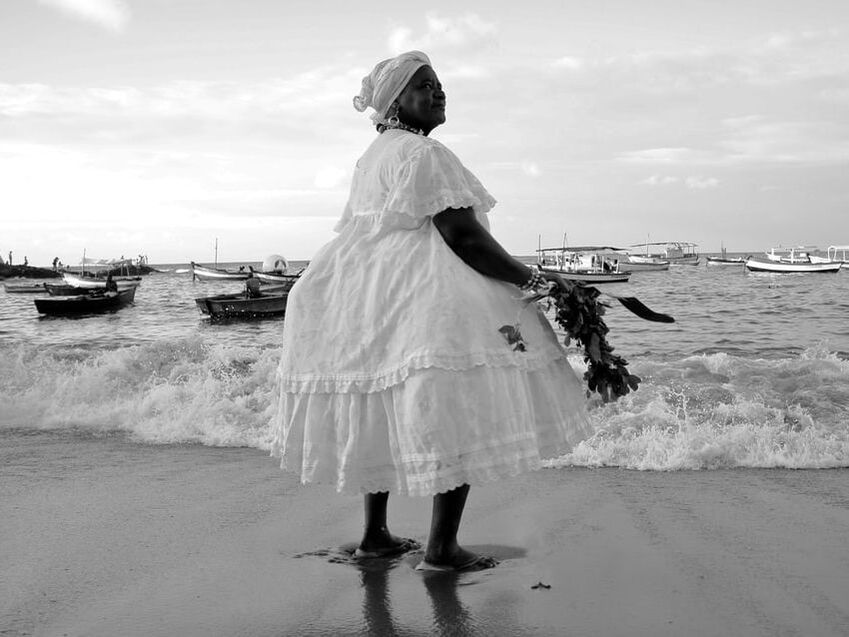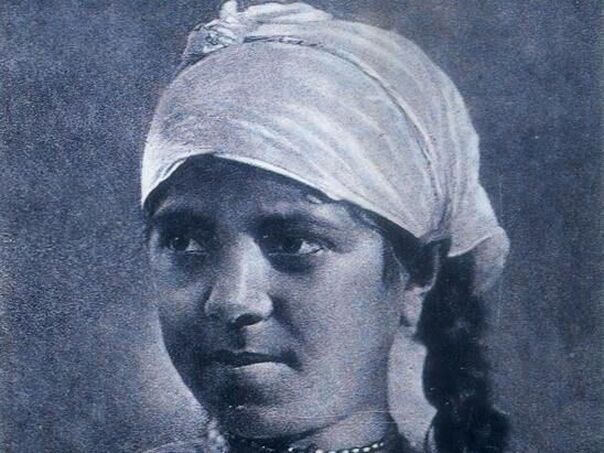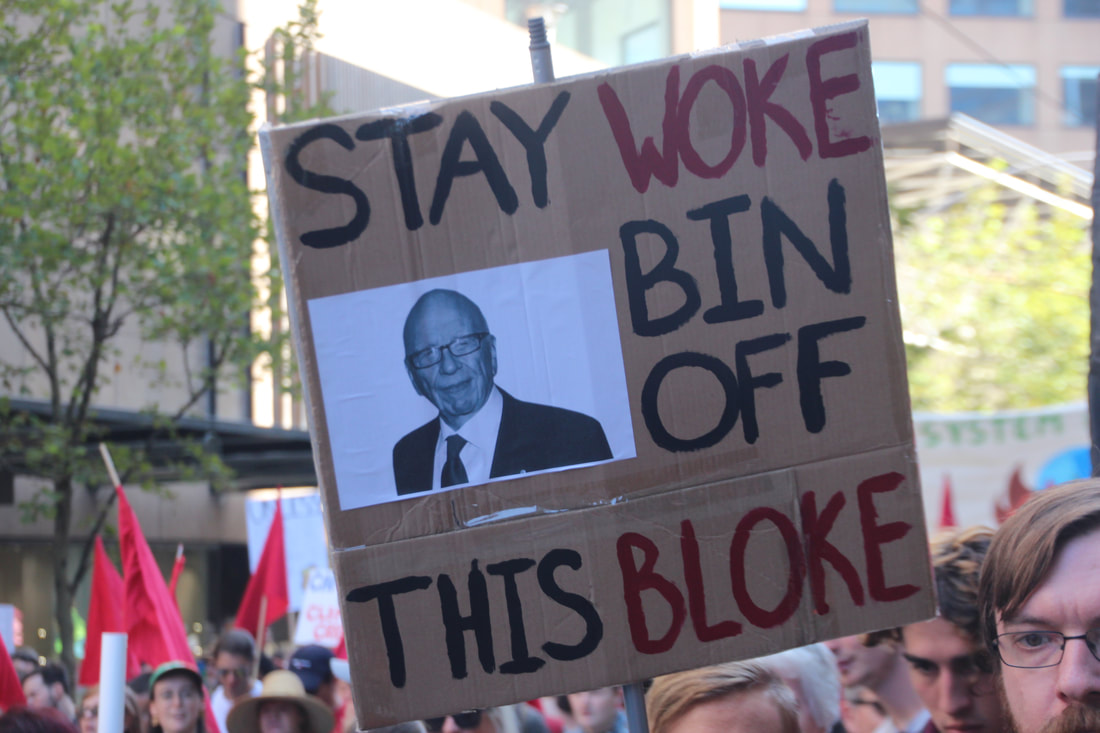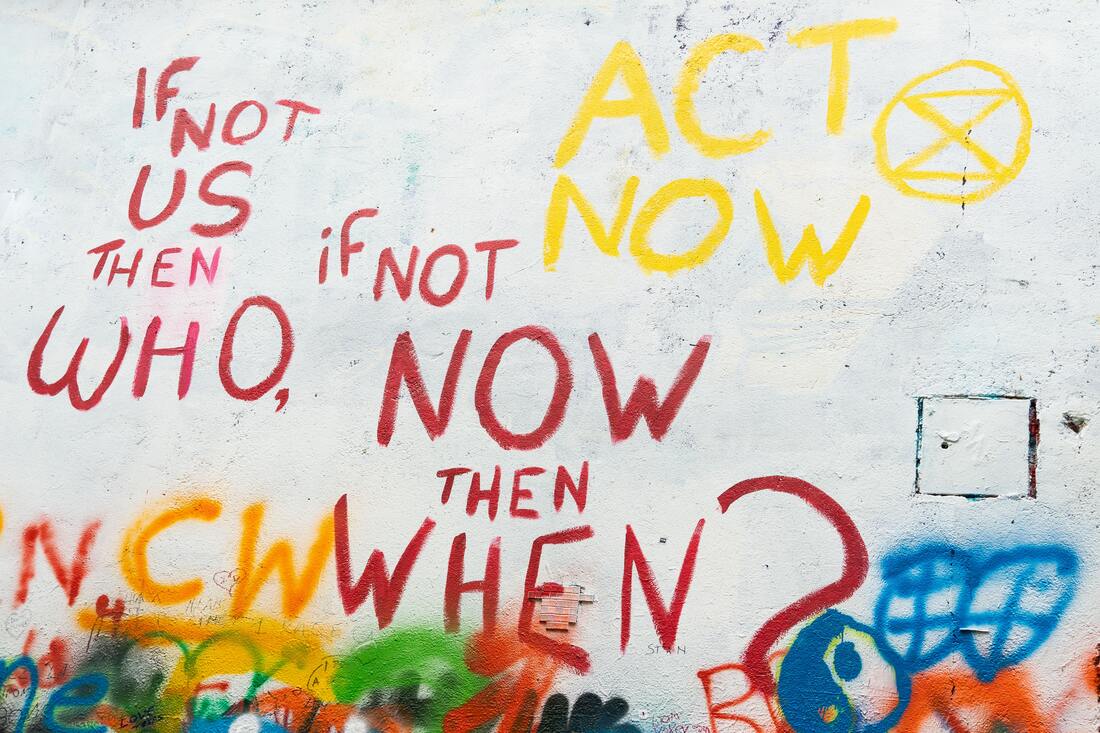|
|
|
Kashmiri solidarity with Palestine and the ongoing situation in Gaza is currently being silenced by Narendra Modi’s BJP. For decades, the ongoing resistance between Kashmiri civilians and Indian security forces in the Kashmir Valley (particularly Srinagar) has drawn inspiration from the Palestinian struggle (particularly in Gaza) and the two situations have often been compared and contrasted. However, since October 2023, the solidarity that Kashmiris have towards Palestine and the ways in which it is expressed has changed because of the clamping down of Modi’s BJP and his security forces. This short piece provides insight into two aspects of Kashmiri solidarity with Palestine. Firstly, it looks at why Kashmiris are willing to risk their own safety to stand in solidarity with Palestinians in Gaza. Secondly, it explores exactly what this solidarity looks like and examines how Kashmiris are finding alternative ways to resist such silencing that may not be through street demonstrations, but instead using the mediums of art and poetry. The piece considers the following questions: why do Kashmiris stand in solidarity with Palestine? What are the consequences that Kashmiris face through this solidarity? Why does Modi silence Kashmiris when it comes to Palestine?
0 Comments
Blog post by Fraser McQueen, University of Bristol, UK
Anxieties were running high on Sunday as French voters went to the polls in the second round of this year's legislative elections. At a time of rising support for the far right across Europe – and with France's current centrist administration having already passed hard-line anti-Muslim and anti-migrant policies – most observers believed that the far-right National Rally (RN) would emerge as the nation's strongest party. An overall majority seemed unlikely, but possible. The eventual result was very different: a shock victory for the left-wing New Popular Front (NFP). The RN and its allies finished third, with the 'centrist bloc' composed of President Emmanuel Macron's party and its allies coming in second. The far right was kept out through a resuscitation of what was historically labelled a 'Republican front'. As the second round of voting approached, an unprecedentedly high number of three-way contests in various constituencies looked likely. Many (although not all) candidates from either the left or centrist blocs therefore stood down, asking their first-round supporters to support an opponent better placed to beat the RN.
Blog post by Nasar Meer, University of Glasgow and co-Editor of Identities: Global Studies in Culture and Power
One of the subplots emerging from the 2024 General Election is to be found in talk of the ‘Muslim vote’. This is said to have been mobilised against the Labour Party, in protest at its position on Gaza, in constituencies with a sizable Muslim electorate. The success of Independent candidates such as Shockat Adam, a local resident in Leicester South who overturned a 22,000 majority of the incumbent shadow cabinet member Jonathan Ashworth, certainly came as a surprise. While prevailing MRP (multi-level regression and post stratification) models generally proved accurate in translating polling data into seat predictions, with some exceptions, they also reproduced a longstanding problem about the under polling of minority groups, which elsewhere missed that 23-year-old first time campaigner Leane Mohamed would in Ilford North come within 528 votes of unseating the new Health Secretary, Wes Streeting.
Gaza, Solidarity and the Right to Protest Blog Series, Guest Edited by Alana Lentin and colleagues
Blog post by Anna Younes Dr Anna Younes is a scholar of race critical theories, using psychoanalytic approaches and post-/colonial theory. Israel is “imposing a complete siege on Gaza.
Israeli politicians, lawmakers, military personnel, as well as ordinary civilians, are talking – yet again – about Palestinians as animals: “human animals”, to be precise. For race critical scholars, or those studying genocides, it is no news that such dehumanizing language is often followed by an equally dehumanizing treatment. But what does that mean concretely for our understand of fast or slow genocide/s, and how might it propel academia to reframe our thinking around settler colonialism when viewing dehumanization through animal taxonomies?
Blog post by Aaron Winter, Lancaster University, and Co-Editor, Identities: Global Studies in Culture and Power. Cross-posted from openDemocracy.
Since the horrific Hamas attack in Israel on 7 October and Israel’s assault on Gaza in response, I have heard a great deal about how Jewish people in Britain, as well as other places, are intimidated, afraid and under threat. According to Justin Cohen of The Jewish News, “the Jewish community at the moment is full of dread, full of fear, like I've never seen before”. According to the Campaign Against Antisemitism, British Jews felt “forced to hide” during “anti-Israel” protests in London. Havering Council in London even cancelled its annual Hanukkah menorah display out of fears it could “inflame tensions”, though subsequently reversed the decision. We have also seen similar cancellations in the US.
Blog post by George Newth, University of Bath
In late December 2023, UK prime minister Rishi Sunak gifted his Italian counterpart, Giorgia Meloni, an early Christmas present: his speech at the so-called Atreju rally organized by Meloni’s far-right Fratelli d’Italia (Brothers of Italy) party, contributed to a further legitimization and mainstreaming of far-right politics in Europe. By focusing predominantly on migration, Sunak employed a racist, xenophobic and nationalist discourse. When used by mainstream politicians, such narratives hold the power to euphemize, legitimize and normalize the politics of fear and hatred promoted by the far-right. Sunak’s appearance came barely a year after Meloni’s victory in the 2022 snap elections in Italy. The results of this poll marked a watershed moment in what has been a gradual but steady normalization, mainstreaming and rehabilitation of the far-right following the end of the Second World War. Meloni is Italy’s first far-right prime minister since 1945, and Fratelli d’Italia – the leading party in Italy’s current governing majority - has roots in Italy’s fascist past. In the weeks leading up to the 2022 elections, one of Meloni’s key discursive strategies was to depict her party as ‘centre-right’ and ‘conservative’. Since then, Meloni’s self-representation as a ‘moderate’ has been helped considerably by mainstream voices; Sunak’s speech in Rome was the latest step in this disturbing process.
Gaza, Solidarity and the Right to Protest Blog Series, Guest Edited by Alana Lentin and colleagues
Blog post by Tom Six Dr Tom Six is a Reader in Politics and Performance and Head of the Research Degrees Programme at the Royal Central School of Speech & Drama at the University of London. One of the most striking features of British responses to Israel's recent genocidal violence has been the tenacity with which liberal commentators have defended it. If we are shocked by this willingness to defend the luridly indefensible, however, we should not be surprised by it. Defence of Israel's colonialism at a structural level - sometimes balanced by criticism of its more extreme advocates - is a core commitment of liberal politics and culture, rarely subjected to serious analysis, let alone challenged. I therefore offer, here, an account of a particular example of this phenomenon, the 2022 documentary play Jews. In Their Own Words, which was written by journalist and commentator Jonathan Freedland and staged at the Royal Court Theatre in London in response to incidents of antisemitism in that theatre. Reading this production in dialogue with Freedland's writing about Israel's assault on Gaza, as well as that of other liberal commentators, offers, I argue, some crucial insights into the commitments and strategies of liberal anti-antisemitism and its peculiar relationship to an Israeli state that is currently – even by its own historic standards – flagrantly illiberal. In brief, I argue that what is at stake in liberal accounts of contemporary antisemitism has been widely misdiagnosed. The issue is not so much that exaggerated accusations of anti-Jewish racism are 'weaponized' for political gain, as is widely asserted, but is a criticism so generalizable that it fails to illuminate this particular context very much. More specifically, responses to antisemitism have been widely constructed by liberals so as to constitute plausibly deniable support for Israel. By analysing this strategy of liberal Zionism, we can more accurately critique its attempt to erase colonialism from considerations of Israel, and thus to defend the indefensible.
Gaza, Solidarity and the Right to Protest Blog Series, Guest Edited by Alana Lentin and colleagues
Blog post by Shereen Fernandez and Waqas Tufail Shereen Fernandez is an LSE Fellow in the Department of Sociology at the London School of Economics and Political Science. Waqas Tufail is a Reader in Criminology in the School of Social Sciences at Leeds Beckett University. The current wave of international solidarity with Palestine has faced significant backlash in Western nations primarily from politicians and media outlets, but also from within institutions. In the United States, for instance, there are countless reports of individuals being fired from their jobs for publicly expressing sentiments of solidarity with Palestinians and particularly those under siege in Gaza. On US college campuses, doxxing of students expressing sympathy towards Palestinians using billboards attached to trucks has been employed as a technique to publicly name and shame individuals. One purpose of such tactics is to inform future employers not to hire these students but more chillingly it is a strategy used to dissuade and silence others from taking such principled action. This silencing can often be violent, as demonstrated by the recent shooting of three Palestinian male students in Vermont, who were allegedly targeted for wearing keffiyehs.
Gaza, Solidarity and the Right to Protest Blog Series, Guest Edited by Alana Lentin and colleagues
Blog post by Rachel Solnick and Clive Gabay Rachel Solnick is a PhD candidate in the Department of Geography and Earth Sciences at Aberystwyth University. Clive Gabay is a Reader in International Politics at Queen Mary University of London.
Israel's relentless bombing of Gaza, which scholars have warned could amount to the crime of genocide, has been met with global protests. An important element of these protests has been growing numbers of individual and collectively organized Jewish protesters, many of whom identify as anti-Zionist. Across various locations, notably in the US and Germany, Jewish anti-Zionist protestors have been met with police arrest, as well as growing calls from Zionist Jews to label them as “cherem”, an old term denoting total exclusion and excommunication from the Jewish faith. Such attempts to erase Jewish anti-Zionists are not new and have regularly characterized Zionist attacks on Jews both from within the Zionist Jewish community and from non-Jewish Zionist politicians and media. While Zionism has only been a majority position within institutionalized diasporic Jewish spaces since the mid-20th century, and could be found being resisted even as late as the 1960s*, Zionist historiographies have rendered the many Jewish non- and anti-Zionist communities and movements that characterize Jewish histories almost unknown and redundant as templates for contemporary Jewish identity. At a time when there are increasing efforts to police Jewish anti-Zionism, it is vital to historicize the traditions of non-Zionist Jewish thought and mobilization.
Gaza, Solidarity and the Right to Protest Blog Series, Guest Edited by Alana Lentin and colleagues
Blog post by Ronit Lentin A retired Associate Professor of Sociology, Ronit Lentin is the author of Traces of Racial Exception: Racializing Israeli Settler Colonialism (2018). The question to be asked is… how long are we going to deny that the cries of the people of Gaza… are directly connected to the policies of the Israeli government and not to the cries of the victims of Nazism? (Edward Said, 1994) What we are experiencing here in Gaza is not a war, but a genocide… War is between countries that have militaries, weapons, and air forces. War is not waged against 2.3 million civilians who live in an area of 360 square km and have been under siege for more than seventeen years (Ruwaida Amer, 2 November 2023)
A month into the Israeli genocidal attack on Gaza, junior minister Amichai Eliahu called for dropping a nuclear bomb on Gaza, saying “Gaza has to stop existing… (Gazans) cannot live on this earth”. He later retracted, saying it was “only metaphorical.” But genocide is not a metaphor, to borrow from Eve Tuck and Wayne Yang’s essay, “Decolonization is not a metaphor”.
Blog post by Aaron Winter, Lancaster University, and Co-Editor, Identities: Global Studies in Culture and Power. Cross-posted from British International Studies Association Voices from BoisMitidja.
This piece is based on my intervention at the British International Studies Association (BISA) Colonial, Postcolonial and Decolonial (CPD) event ‘Refusing Carcerality - A Public Roundtable’ at King’s College London on 14 June 2023. It was a great event and opportunity to hear other interventions, reflect on issues, and bring together some issues and ideas I have had working in Criminology and on counterextremism, counterterrorism and the far right in relation to important discussions about carcerality and abolition. Carcerality always extends beyond what are typically seen as carceral institutions, policies and punishments, particularly in the context of abolitionist theory and activism and our understanding of the carceral state and society. I would like to return it to the prison and penal system for a moment though to discuss how differences and alternatives to the carceral are constructed, used and played off one another in the context of counterextremism, counterterrorism and Criminology in ways that can distract from and ultimately serve an unequal and unjust system. This is particularly important if our opposition to the carceral is also about opposing this system, focusing on systemic inequalities and injustices (related to but expanding beyond ‘crime’) and envisioning more radical and truly emancipatory alternatives.
On 7 March 2023, UK Home Secretary Suella Braverman, escalating the rhetoric on and punitive approach to migration, asylum and refugees, announced the ‘Illegal Migration Bill’ and strategy to stop migrants crossing the Channel in small boats by arresting, detaining, deporting and banning those caught. In response, former football player and BBC Match of the Day (MOTD) Presenter Gary Lineker tweeted that it is ‘an immeasurably cruel policy directed at the most vulnerable people in language that is not dissimilar to that used by Germany in the 30s’. The tweet led to a backlash in which responses ranged from the claim that he was operating beyond his remit as a sport presenter (as if they have not had to discuss racism and nationalism before), that he was in breach of the BBC’s impartiality rules, and that the comparison was unhelpful. Keir Starmer, Leader of the opposition Labour Party stated: ‘I think comparisons with Germany in the 1930s aren’t always the best way to make one’s argument’. Others took offense and expressed shock that anyone could associate Britain and the current government with the lead up and precursors to Nazism and the Holocaust. Some claimed that Lineker actually referred to these explicitly in his tweet, which he did not. Former Conservative MP for Stoke-on-Trent Jonathan Gullis claimed that Lineker was calling ‘people up here’, referring to Northern ‘Red Wall’ voters, which Starmer and Labour are also targeting with anti-immigration rhetoric, ‘racist bigots, Nazis’. According to Matthew Goodwin, Lineker’s comments are an example of how out of touch the ‘new elite are from the majority of the ‘people’ from the ‘Red Wall’ to ‘Tory Shires’, and particularly those at ‘the bottom’: ‘the white working class, straight men, non-graduates, and those who cling to more traditionalist views, such as supporting Brexit’.
Motivated by a need to think in terms of consequences, the language of ‘adaptation’ has become key in approaches tackling climate change.[i] While discussion of adaptation has an older provenance[ii], bodies such as the Intergovernmental Panel on Climate Change (IPCC) have adopted it with a justified urgency, and in ways that have seen adaptation enlisted by diverse actors – and across a variety of approaches – much as if it were a ‘chameleonic’ concept’. That is to say, approaches called adaptation appear ‘able to move further into policy either because they overtly complement institutionalized ideas’ or have ‘chameleon-like qualities which facilitate their translation into policy’.[iii] This understanding helps explain the seeming appeal of the concept but also contains clues as to why prevailing adaptation approaches have been inattentive to the racial determinants of vulnerability to climate change.
Cross-posted by RACE.ED
‘We are now in the age of Du Bois’, declared Aldon Morris in his widely acclaimed study, The Scholar Denied: W. E. B. Du Bois and the Birth of Modern Sociology. In this, Morris meticulously charts the intellectual contribution of Du Bois (1868-1963) to the social sciences broadly conceived, and sociology in particular, to argue that this remarkable figure could no longer been treated as peripheral, or an ‘add on’. After all, few sociologists pioneered as much as Du Bois, including in, amongst other areas, both quantitative and qualitative methodologies, especially social statistics and urban ethnography, reconciling questions of political economy with social movements (not least in charting the suppression of Atlantic slavery), as well as foregrounding relationships between the self and society, and doing so in ways that prefigure questions later posed in the politics of recognition. For these reasons I am not alone in arguing that Du Bois has bequeathed to sociology a cluster of normative categories that compel us to move beyond a kind of formalistic inquiry, and through which we might be more open to uncovering sometimes submerged features of social life (1).
A number of different aspects of identity are relevant to young people, from self-esteem, distinctiveness, self-concept, clarity, coherence and self-continuity. We recently published a paper in the Journal of Social Psychology Research on the importance of the social context as a component self-continuity. Using young adults (ages 19-25) from the US and Brazil, our latest research demonstrates that the social context, specifically our friends and family, is a novel, measurably distinct self-continuity strategy. In particular, the results from our study exemplify that relationships continue to play an important role in healthy identity development.
Emerging adulthood refers to the period of early adulthood between the ages of 18 and 25. Specifically, it’s characterized as an age for exploring different identities, within the contexts of school, work and romantic relationships, to name a few. Due to the changing roles during this period of the lifespan, this is also an age exemplified by instability. Beyond that, emerging adults can feel in-between adolescence and adulthood, that this is a period of their lives to focus on themselves and that the future contains a range of possibilities for them. As such, this makes for a crucial period to study identity development.
On 8th September 2021, a crowd gathered on Monument Avenue in Richmond, Virginia, USA, near the base of its iconic statue of Confederate General Robert E. Lee. The atmosphere in the crowd was jubilant as workers positioned a crane, wrapped the statue in a harness, and finally–after an hour of preparation, a year of court cases, and 131 years of racial terror set in stone–pulled the statue down from its plinth.
The equestrian statue of Robert E. Lee, Commander of the Confederate Army, is, and always has been, a symbol of white supremacy. Its removal creates the opportunity to change the meaning of the space it once occupied. For the past year at the Centre on the Dynamics of Ethnicity (University of Manchester), we have interviewed activists, policymakers, and cultural workers involved in contesting fourteen statues of slavers and colonisers in five countries. We have also explored the meanings of statues of empire and colonialism with young people from Manchester Museum’s OSCH Collective who shared how statues of white supremacy in towns and cities they call home impacted their sense of belonging. Our research highlights how anti-racist activists draw from global movements to contest local histories and memories. Equally, we consider how strategies for removing Confederate statues in the US (for example) might provide lessons for challenging imperial statues in the UK.
Experiences of displacement and longing-for-a-home are very much rooted in the human condition. In this discussion I consider three books focusing on displaced people of distinct diasporas whose experiences, I believe, provide novel insights into not only what exile may mean but how it may, in different ways, condense time and space into symbols, meanings, and narrations of religious, political, or material significance. These include Thomas A. Tweed who approaches the experience of exile of Cubans in Miami by deciphering the material culture inherent in their pilgrimage site and meanings embedded in their rituals while mainly asking how diasporic religion and exile experience may be connected. Sara E. Lewis, meanwhile, explores the exile experience of Tibetan Buddhists in Dharamsala, India by looking into the local processes of resilience and recovery in the face of political violence while asking how human rights campaigns and foreign trauma discourse are situated within a form of life shaped by Buddhist ideals of downplaying personal suffering. Finally, Diana Allan analyzes the experience of exile of Palestinians in Shatila refugee camp in Lebanon, drawing our attention to the everyday material reality of their experience while raising the question of what it means for generations born in exile to aspire for a liberated land which they never left and how these refugees may resist against purely nationalist identities and ideals.
Coloniality deserves special attention to contextualise Professor Hempton’s lecture on “Women’s Networks: Opportunities and Limitations”. First, the context that overlaps historical and political elements: the year 1888. The poster at the back of Professor Hempton as he delivered the talk informed that the Gifford Lecture series dates from 1888. In the same year, Brazil declared the Abolition of Slavery – the last country in the Americas to officialise such law that is not fully put into practice as many cases of forced labour and slavery remain current.
That reminded me of so many unofficial Black women’s collectives who organised as a quilombo, favelas communities, marginalised neighbourhoods (periferias) as they created ways to resist and refuse the places that the colonial-hegemonic society imposed on them. For example, the Herstories of Dandara and Luiza Mahin. Dandara refused to be enslaved and became a quilombo leader, a warrior, agriculture worker in the initial land rights, abolitionists, antiracist and feminist movements in Brazil during the late 1600s. Luiza Mahin was a Muslim, enslaved domestic worker, strategist of one of the most remarkable pro-abolitionist revolutions in Brasil – the Malês Revolt – organised by enslaved peoples. Her Islamic, Jêje-Nago and Yoruba backgrounds are the marks of intersecting systems of beliefs that to this day are erased in the narrative about Brazil’s national identity.
In the comedy special ‘His Dark Material’, Jimmy Carr joked about the Roma Holocaust:
‘When people talk about the Holocaust, they talk about the tragedy and horror of 6 million Jewish lives being lost to the Nazi war machine. But they never mention the thousands of Gypsies that were killed by the Nazis. No one ever wants to talk about that, because no one ever wants to talk about the positives.’
Carr’s joke has sparked widespread outrage – yet some voices have defended it as ‘gallows humour’. Back in 2017, the author Alexandra Erin, in a Twitter thread on comedy, wrote ‘If the person on the gallows makes a grim joke, that’s gallows humor. If someone in the crowd makes a joke, that’s part of the execution.’ And here, Carr wasn’t speaking from the gallows; those on the gallows are in fact, one of the most oppressed and discriminated against groups to this day: the Roma, and within the scope of the joke, the European Roma and Sinti targeted in the Holocaust.
While the ‘Common-Sense Group’ of MPs and Lords still retain the term, during the last few years the far-right conspiracy theory Cultural Marxism has fallen out of favour within mainstream British right-wing discourses. It has been largely superseded by the pejorative use of the term ‘woke’, which originated from the fight for racial justice in the USA. This blog post examines the transition from Cultural Marxism to woke and asks what does the derogatory use of so called ‘wokeism’ offer to its patrons that Cultural Marxism doesn’t?
Cultural Marxism is a long-standing far-right conspiracy theory. According to the American far-right, The Frankfurt School of Jewish Marxist intellectuals, who escaped Nazi Germany, initiated a plan to destabilise America from within by using their supposed control of the organs of culture, including education, the media, and churches, to attack Western civilisation and undermine pride in its past. The far-right sees the progressive civic and social movements that began in the 1960s – feminism, LGTBQ+ rights, black power, anti-colonial liberation, environmentalism, and pacifism as part of Cultural Marxism’s orchestrated effort to “destroy the American way of life as established by whites”.
Cross-posted by Ideology Theory Practice
Discussion and debate about the far right, its rise, origins and impact have become ubiquitous in academic research, political strategy, and media coverage in recent years. One of the issues increasingly underpinning such discussion is the relationship between the far right and the mainstream, and more specifically, the mainstreaming of the far right. This is particularly clear around elections when attention turns to the electoral performance of these parties. When they fare as well as predicted, catastrophic headlines simplify and hype what is usually a complex situation, ignoring key factors which shape electoral outcomes and inflate far-right results, such as trends in abstention and distrust towards mainstream politics. When these parties do not perform as well as predicted, the circus moves on to the next election and the hype starts afresh, often playing a role in the framing of, and potentially influencing, the process and policies, but also ignoring problems in mainstream, establishment parties and the system itself — including racism. This overwhelming focus on electoral competition tends to create a normative standard for measurement and brings misperceptions about the extent and form of mainstreaming. Tackling the issue of mainstreaming beyond elections and electoral parties and more holistically does not only allow for more comprehensive analysis that addresses diverse factors, manifestations, and implications of far-right ideas and politics, but is much-needed in order to challenge some of the harmful discourses around the topic peddled by politicians, journalists, and academics.
Cross-posted from RACE.ED
As part of my final year at university, I completed research for my undergraduate dissertation, with a focus on the racial disparities within experience and attainment in higher education institutions. Bunce et al (2019) found that whilst 78% of white students are likely to receive a ‘good degree’ (2:1 or higher) only 66% of Asian students and 52% of Black students would reach the same classification, emphasising the hidden barriers for Black students. It was obvious that there was an invisible burden that many of the Black students I spoke to felt responsible to bear. One student described it as being the “Martin Luther King of the classroom”, the constant requirement to correct racism that goes ignored by those who are not Black. Another student further reinforced this point by describing how she felt that “…they are happy to ask the Black student what they should do but I think if it was other people’s problems, they would hire someone to find a solution…” These behaviours are not confined to the classrooms at universities but it is clear that these flippant expressions of racism are entrenched in practically every institution within the UK. For example, Parsons (2009) argues that policy is reactive rather than preventative; something has to occur before any form of retrospection is ensued by the institutions involved. The racist murder of Stephen Lawrence and the Macpherson report only confirmed the beliefs of many Black British citizens already.
An interview with Aurelien Mondon, by Giorgos Venizelos. This interview was first published in Populism, Issue 4, July 2021.
You keynoted the 5th annual Populism Specialist Group workshop which focused on the theme ‘Populism: New Perspectives’. What are your general impressions? Where is the field moving these days? The various panels and papers confirmed to me that part of the field is moving in some very interesting and promising directions and it was a real honour to provide a keynote for the Populism Specialist Group as it is to me the most exciting forum to discuss populism. This is because scholars who present at the workshop tend to come from more critical approaches. Sadly, it would be mistaken to think that this necessarily reflects the wider environment and, unfortunately, there is much out there that continues to play into what some of us have termed populist hype or anti-populism. While critical approaches have progressed in recent years and occupy now a central place in discussions on populism, there is still plenty of work to be done and plenty of damage to be undone, something that is unavoidable when a term like populism becomes so central to mainstream politics.
Cross-posted from RACE.ED
It has been widely reported that the COVID-19 pandemic has disproportionately impacted Black and Ethnic Minority (BAME) communities across the UK, which have suffered higher rates of hospitalisation and mortality. While the causes of this outsized impact are yet to be fully untangled, it is consistent with longstanding disparities in health outcomes and access to medical treatment between BAME communities and the white majority. The pandemic has, in effect, brought pre-existing health inequities to the fore. With all our hopes for overcoming the pandemic resting on the success of our vaccination programme, it is essential that the jabs being put into arms have been shown to be safe and effective for people across the entire spectrum of our ethnically diverse population. This is important for two reasons. First, medical treatments can have varying effects for people of different ethnic backgrounds, and hence it is essential that clinical trials include volunteers that are representative of the different groups that make up our population. Second, people from BAME backgrounds deserve the same opportunity to build trust in vaccines. This means knowing that vaccines have been rigorously tested on volunteers from their own communities, as well as other groups.
A recent Policy Exchange report made waves in criminological circles, (mis)identifying drill music and ‘gangs’ as prime suspects in connection with knife crime, while also defending more stop and search – despite the report’s own criticisms of it. Unsurprisingly, this ill-thought, badly researched and politically dubious intervention inspired a fierce rebuttal from 49 experts in Criminology, youth justice and rap music. In support of the criticism that this report has already drawn, we write to further expose various factual errors and wild claims contained in it – out of concern for its potential to mislead the public and misrepresent the people and communities that are worse affected by such irresponsible punditry. This is important not just as an exercise of setting the record straight, but as an indication of the dangerous precedent that such inflammatory policy entrepreneurship sets for social justice. In the context of draconian new police powers that this report validates, we consider the threat that the criminalisation of public life poses on human rights, civil liberties and factual accuracy too. While we concentrate on the Police Exchange report itself to reveal only some of its many failures, we also illustrate what is at stake when evidence-less, ideologically-driven policy is written into law and what that means for democracies that behave in disturbingly authoritarian ways.
|
|
Explore Identities at tandfonline.com/GIDE |
|
The views and opinions expressed on The Identities Blog are solely those of the original blog post authors, and not of the journal, Taylor & Francis Group or the University of Glasgow.




